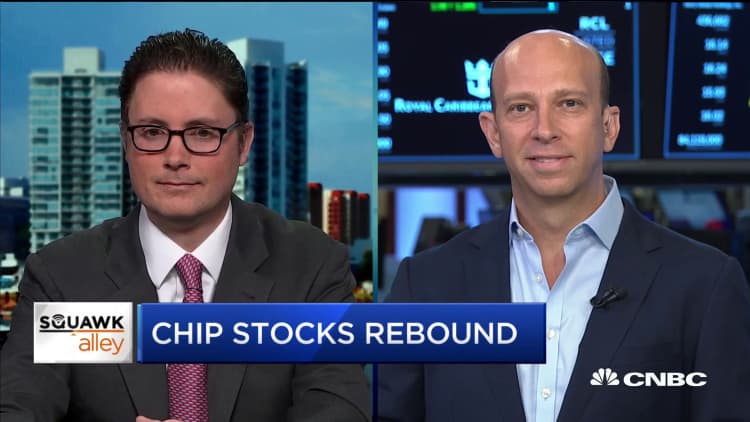
Stocks closed higher on Tuesday following news that the U.S. temporarily eased restrictions on Chinese telecom giant Huawei.
The Dow Jones Industrial Average rose 197.43 points to 25,877.33 as Intel outperformed. The gained 0.9% to end the day at 2,864.36, with the tech sector jumping 1.2%. The Nasdaq Composite advanced 1.1% to 7,785.72.
Equities also got a boost from Boeing. Shares of the airplane maker rose 1.7% after U.S. aviation officials that a bird collision may have caused the 737 Max crash in March.
The Commerce Department said Monday night it would allow Huawei to purchase American-made goods in order to maintain existing networks and provide software updates to existing Huawei handsets until Aug. 19. The move sought to minimize disruption for the telecom company's customers around the world. The initial restrictions worried investors that the ongoing U.S.-China trade war was intensifying.
"That's another ray of hope that we can avoid the worst-case scenario," said Art Hogan, chief market strategist at National Securities. "The market tends to be seizing on the positive undertones in trade."
"It felt like they needed to show some flexibility in the administration," Hogan said. "A week ago Sunday, it seemed like we were heading into no-man's land on trade."
Shares of chipmakers Micron Technology rose 3% while Xilinx gained 4.6%. Both Micron and Xilinx have Huawei as a customer. Qualcomm shares advanced 1.5%. Nvidia and Lam Research gained 2.2% and 1.8%, respectively.
Chinese stocks rose broadly on the news. The Shanghai Composite gained 1.2% while the Shenzhen A Shares index jumped 1.8%. European shares also traded higher as the Stoxx 600 index advanced 0.5%.
The administration's move comes nearly a week after the Trump administration said U.S. companies would need a license to do business with Huawei. This was seen as an escalation in the ongoing trade war between China and the U.S.
Both countries recently hiked tariffs on billions of dollars worth of imports, sending ripples through financial markets.
The S&P 500 and Dow are both down more than 2% in May, while the Nasdaq had lost 3.8% through Tuesday's close. Among S&P 500 sectors, only real estate was up for the month.
Trade tensions are not going away any time soon. Chinese President Xi Jinping signaled there would be no end to the trade war in the near future. Last week, CNBC learned that scheduling talks regarding trade negotiations had stalled.
Dryden Pence, chief investment officer at Pence Wealth Management, said the market will remain in a tight range until the conflict is resolved. Once that happens, stocks will go higher.
"It's hard for the market to go a lot higher until we get some resolution on trade. But it's hard for the market to go a lot lower because the fundamentals are there," Pence said. "Right now, the world is negotiating via headline. That's going to move the market, but the market is not going to stay wherever it moves because reality always catches up to headlines sooner or later."
Kohl's shares plunged 12.4% after reporting weaker-than-expected earnings. J.C. Penney also dropped 7.4% following the release of its quarterly numbers.
—CNBC's Sam Meredith contributed to this report.


